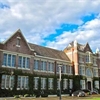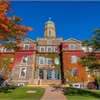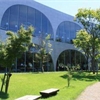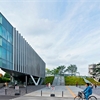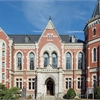Sweden Country Profile 3507
 Rieter University,The first batch of overseas study institutions certified by the Ministry of Education,Accredited by the world's top ICEF Education Exhibiting Organization (Screened Agency),Member of the National Overseas Study Agency Service Alliance (COSSA),Member of Beijing Overseas Study Service Industry Association (BOSSA),China Education Association for International Exchange self-funded study abroad intermediary service branch director unit,More than 10 years of experience in overseas study and immigration services,We have helped thousands of students achieve their dreams of studying abroad and finding jobs。
Rieter University,The first batch of overseas study institutions certified by the Ministry of Education,Accredited by the world's top ICEF Education Exhibiting Organization (Screened Agency),Member of the National Overseas Study Agency Service Alliance (COSSA),Member of Beijing Overseas Study Service Industry Association (BOSSA),China Education Association for International Exchange self-funded study abroad intermediary service branch director unit,More than 10 years of experience in overseas study and immigration services,We have helped thousands of students achieve their dreams of studying abroad and finding jobs。
If you have any questions about studying abroad and working abroad, please call us 022-2328-9071/9075
Sweden Country profile:
Location, climate and populationScandinavia, located in northern Europe, is one of the largest countries in Europe (after France and Spain, and about the same size as California in the United States).。Sweden is large and sparsely populated, with a total population of about 9.33 million and a land area of 450,000 square kilometers, with a low population density (only 23 inhabitants per square kilometer, compared to more than 100 people per square kilometer in the rest of the European Union).。Although Sweden is in a high latitude area, but under the influence of the Atlantic warm and humid air, the climate is very pleasant (the maximum temperature in summer is about 17 degrees Celsius, the maximum temperature in winter is about minus 3 degrees Celsius).。Summer and winter are both long, and the area north of the Arctic Circle has both polar day and polar night。7 hours later than Beijing time。
Capital and major citiesThe capital of Sweden is Stockholm (with a population of about 1.96 million, known as the "Venice of the North"), and Gothenburg (with a population of about 910,000) and Malmo (with a population of about 580,000) are the second and third largest cities in Sweden。
Language and economyThe official language of Sweden is Swedish, but more than 90% of Swedes have received a good English education and can speak very good English。Sweden is one of the richest countries in the world (in terms of per capita GDP, Sweden is one of the richest 15 countries in the world) and one of the countries with the highest level of science and technology and the most innovative capacity (Sweden has the highest number of scientific papers published per capita and the number of patents in the world).。Sweden is a small country in terms of population, but it has given birth to a number of internationally renowned large companies, such as IKEA, Ericsson, Volvo, Electrolux, Saab, H&M, ABB, SKF and others are world-renowned world brands, these international enterprises are basically export-oriented, their commercial success, and the world's highly appreciated welfare system, resulting in Sweden's current enviable standard of living。High-quality education and a highly skilled workforce, smooth internal communication and a high level of Internet access (90% of households are connected to the Internet) have also contributed。Sweden's communication, electronic information, photoelectric industry started early, strong technical foundation, and has now become one of the world's high-tech industrial bases。Stockholm is the birthplace, judging and awarding place of the Nobel Prize, and the award ceremony is held here on December 10 every year。
Welfare systemSweden has one of the highest welfare states in the world。Since 1814, Sweden has not been in a war, nor participated in two world wars, has been focusing on economic development, the implementation of a wide range of social welfare policies, the establishment of a relatively complete social welfare system。People live a rich life, almost no gap between the rich and the poor, is a highly developed socialist modern country。International students studying in Sweden can also enjoy government social benefits, such as medical care, after completing the relevant procedures。
教育Sweden has a nine-year compulsory education system, but most students continue to three years of high school, and about a third of students go on to study in Swedish universities。The quality of education in Sweden is very high, with 14 comprehensive public universities and 20 university colleges, as well as a number of specialized universities, and three foundation run universities (Chalmers University of Technology, Jonkoping University and Stockholm School of Economics).。Many Swedish schools are ranked in the world's top 200, such as Uppsala University, the first university in the Nordic region, the world famous Karolinska Medical School, Lund University, Stockholm University and so on。
In Sweden, the undergraduate is generally three years, the master is generally one to two years, and the doctor is generally three to four years。The academic year in Swedish universities is divided into two semesters: autumn and spring. The autumn semester begins in late August or September and ends at the end of January。The spring semester begins in mid-January and ends in early June。
Undergraduate courses in Sweden are mostly taught in Swedish and some in English, but the choice of schools and majors is small。The Master's programme, many of which are taught in English, is open to international students and requires a high level of English language proficiency。There are over 40 undergraduate programs and over 600 master's programs taught in English in Sweden。Undergraduate and master's programmes in Sweden charge tuition fees for students from outside the European Union, the European Economic Area and Switzerland。
货币: The Swedish currency is Swedish krona, 1 Swedish krona is about 0 yuan.96元。







